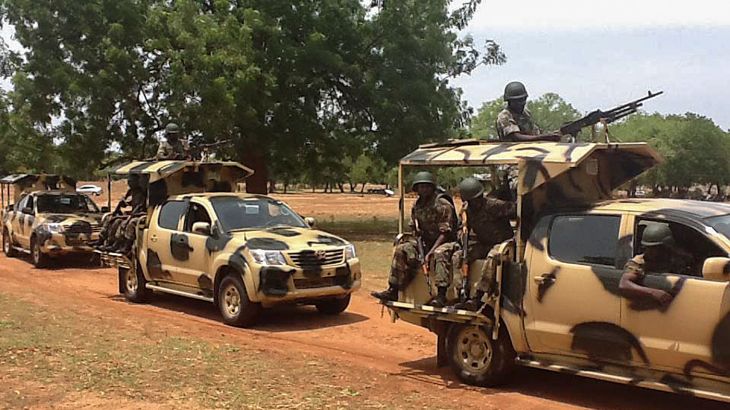
Nigeria: Turning the tide of violence?
We ask whether vigilante groups should help fight Boko Haram or whether their involvement will escalate the conflict.
More than a hundred youths from a group known as the Civilian Joint Task Force were ambushed near the northeastern Nigerian town of Monguno, taking on the armed group Boko Haram.
At least 24 volunteers were killed by suspected Boko Haram fighters, with dozens of others missing. It is the third such attack in a week.
This is a volunteer group basically, it wasn't a group formally set up by the government itself … and I think that's what worries me about the question of them being able to offer assistance to the military, we really have to get into what kind of assistance do we expect from this particular group …
President Goodluck Jonathan had ordered a concerted crackdown on Boko Haram in mid-May and declared a state of emergency in three northeastern states.
The army encouraged the formation of vigilante groups, but volunteers and their families have now become prime targets for Boko Haram. reports are emerging of widespread civilian casualties from the fighting, and also of Nigerian military brutality.
It is adding to concerns that the government offensive and the involvement of vigilantes is only escalating the violence.
Boko Haram was formed in Maiduguri in northeast Nigeria in 2009. In the local Hausa language, Boko Haram means ‘Western education is forbidden’. The group says it is fighting for the creation of an Islamic state in Nigeria.
It has waged a deadly insurgency against the state and many ‘soft’ targets, including schools and churches, that has left several thousand people dead.
Thousands of civilians are being caught up in all this fighting and many are seeking safety across the border in Niger.
They are mostly women and children, and the elderly, living in hastily built shelters, recounting shocking stories of what they left behind.
One refugee said: “It was very unstable, attacks with heavy artillery, bombs, strafing. We saw relatives killed. Bodies were strewn on the ground,” and another woman recalled: “The army started shooting, but what was terrifying was Boko Haram. They were cutting people’s throats. I saw it with my own eyes.”
Nigeria’s president Goodluck Jonathan is also facing an open rebellion within his ruling party. There has been friction over reports that he plans to run for another term in office.
Opponents say that would violate an unwritten rule that power should rotate between the largely Muslim north and mostly Christian south every two terms. So, the next president should be from the north.
So can civilian volunteers help turn the tide of violence? Or will their involvement only add to it?
To discuss this, Inside Story, with presenter Shihab Rattansi, is joined by guests: Mike Ejiofor, a security consultant and former director of Nigeria’s Department of Security Services; Ademola Abass, the head of the Peace and Security Programme at the United Nations University, and a former Nigerian Supreme Court lawyer, and Nii Akuetteh, the former executive director for Africa Action, and an independent specialist on African politics.
| “Fighting Boko Haram … is really a police job, and the Nigeria military is not that well trained itself, and so when it comes into dealing with the community, it seems to me that they are on a back foot. I do think that the civilian involvement is needed, but I think that it has to be information and intelligence being giving to the military … It is very easy to create vigilante groups [but] it is very difficult to control them even when the problem has been solved.”
– Nii Akuetteh, a former executive director for Africa Action |